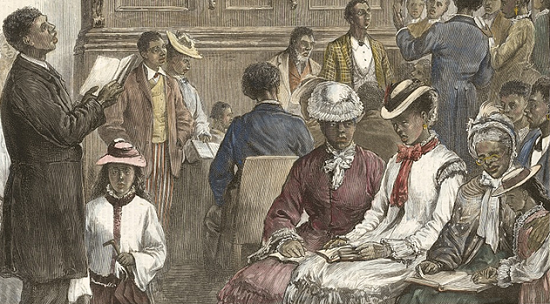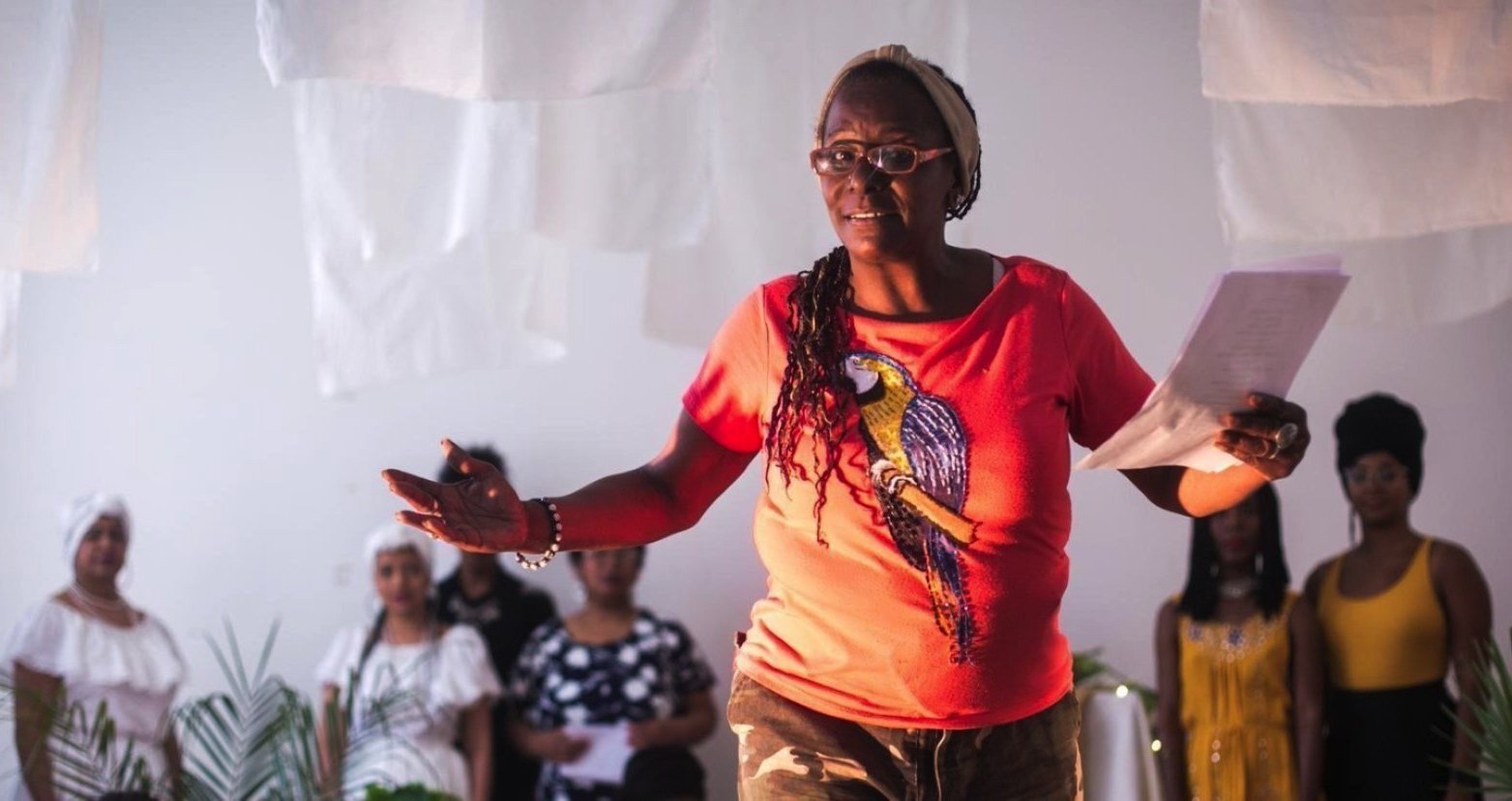
Teaching about the Eugenics Movement in Connecticut: Racism and Resistance
Teaching the History and Legacies of the Eugenics Movement
The Black & Latino History Project
Thursday, March 30, 2023 • 6:30 to 8:00 pm ET
Online • Free and open to the public • Register Here

Teaching Connecticut’s Shade Tobacco Industry
For three months UCONN professors Anne Gebelein, Fiona Vernal, Jason Oliver Chang, and University of Michigan PhD Candidate Elena Rosario have worked with Connecticut teachers, students and public historians to develop new and accessible teaching materials related to the history of Agricultural Labor in Connecticut’s Shade Tobacco Industry.
Join us as we explore how one can teach this subject to foster a deeper understanding of Connecticut’s agricultural history, demographic changes in labor processes, the state’s connections to global economic dynamics, and migration and identity formation in New England.
Wednesday, December 14, 2022 • 6:30 to 8:00 pm EST
online • free and open to the public | REGISTER
Organized by the Gilder Lehrman Center for the Study of Slavery, Resistance, & Abolition at the MacMillan Center at Yale, with generous support from CT Humanities, UCONN El Instituto, & the Anti-Racist Teaching & Learning Collective.


GLC 24th Annual Conference: Teaching Race & Slavery in the American Classroom
The 24th Annual Conference hosted by the Gilder Lehrman Center for the Study of Slavery, Resistance, and Abolition at the MacMillan Center at Yale will address the challenges of teaching slavery and race and other “tough histories” in the American classroom. This conference will engage multiple levels of the current crisis: the history of education and how we got here; the problem of teaching “difficult histories” of all kinds; the challenge of writing textbooks and deeper histories that capture the United States’ historical pluralism; and the everyday practice and political context US teachers grapple with in the classroom today. The panelists discussing these topics include academic scholars from the fields of history, sociology, and education studies; journalists who follow the US education system; and secondary school teachers and education specialists. Co-sponsored by the Yale Education Studies program.

Ongoing (June 17 - Oct. 30): 30 Americans Exhibition
Drawn from the acclaimed Rubell Museum in Miami, Florida, 30 Americans showcases works by some of the most significant artists of the last four decades, including Jean-Michel Basquiat, Mickalene Thomas, Kara Walker, Hank Willis Thomas, and Kehinde Wiley.
This groundbreaking exhibition tells the story of Black humanity through the gaze of contemporary Black artists. Dating from the 1970s to the 2000s, the extensive group of paintings, drawings, collages, photography, portraiture, sculptures, installations, and performance artwork addresses over 200 years of American history and considers the powerful influence of artistic legacy and community across generations. The exhibition invites us to confront the complexities of individual and collective self-making; explore the transformative paths of self-determination and self-healing; reclaim dignity and liberation of the Black body and Black sexuality; and reframe the past, present, and future of African-descended people through wonder and imagination.




2022 Indigenous Peoples’ Day Curriculum Teach-In: Sovereignty and Treaties
The Smithsonian’s National Museum of the American Indian (NMAI) and Teaching for Change will host an online teach-in with keynote speaker Rebecca Nagle and interactive workshops.
NMAI education experts, Teaching for Change, and K–12 teachers will share curriculum and teaching strategies and explore the NMAI’s Essential Understandings for teaching about Indigenous peoples’ histories and their experiences around treaties and sovereignty today.
Workshops will feature classroom resources from the NMAI’s online education portal Native Knowledge 360° and the Zinn Education Project. The teach-in will be held online via Zoom.
Professional development credits provided. ASL interpretation for keynote and selected sessions.

“Rev. James W. C. Pennington: A National and Local Voice for Freedom”
Dr. Stacey Close will lecture on the life of the Reverend James W.C. Pennington, educator and pastor of the Talcott Street church in the 1840s and 1850s, with an emphasis on his impact as a leader of the Black community in Hartford and the context of national events and the abolition movement. Dr. Close, is Associate Vice Provost and Vice President of Equity and Diversity at Eastern Connecticut State University.
Part of the 2022 Hartford History Lecture Series.

Battleground for Freedom: Middletown's "Beman Triangle" and Connecticut Abolitionism, 1823-1865
Join our guest speaker, Jesse Nasta, Executive Director of the Middlesex County Historical Society in Middletown and professor in Wesleyan University's Department of African American Studies, for an exciting look into the hidden history of the Leverett Beman Historic District, or “Beman Triangle”.
Beginning in the 1820s, free people of color in Middletown established one of the first independent Black churches and neighborhoods in Connecticut, among the first in New England. Their AME Zion Church, which will celebrate its bicentennial in 2023, became a center of African American community, abolitionism, and everyday resistance to white supremacy here in Connecticut. In this talk, Jesse Nasta will detail the history of Middletown's remarkable African American Beman Triangle community, as well as connect this neighborhood's story to statewide, regional, and even national Black activist networks for freedom and equality during the four decades before the Civil War.

Advocating for Teaching Honest History: What Educators Can Do
The open enrollment workshop, “Advocating for Teaching Honest History: What Educators Can Do” will equip educators with practical tools and resources to teach honest history in their classrooms. It will also provide strategies for advocating to other stakeholders within their schools and communities about the importance of teaching honest history. This session is ninety minutes and delivered via Zoom.

“Black Community Formation” Exhibit Opening and Curator Talk
Join Dr. Frank Mitchell for the “Black Community Formation” Exhibit Opening and Curator Talk at 10:00 a.m. Dr. Mitchell will share insights about Talcott Street Congregational Church and its role in mobilizing Hartford’s Black community.
Part of the 2022 Hartford History Lecture Series

Book Talk: Translating Blackness, with Lorgia García Peña
In Translating Blackness Lorgia García Peña considers Black Latinidad in a global perspective in order to chart colonialism as an ongoing sociopolitical force. Drawing from archives and cultural productions from the United States, the Caribbean, and Europe, García Peña argues that Black Latinidad is a social, cultural, and political formation—rather than solely a site of identity—through which we can understand both oppression and resistance. She takes up the intellectual and political genealogy of Black Latinidad in the works of Frederick Douglass, Gregorio Luperón, and Arthur Schomburg.

Jim Crow in the Asylum: Psychiatry and Civil Rights in the American South
Thursday, September 15, 2022 • 2:00:00 PM
VideoCast Event | View Here
Kylie M. Smith, PhD, Emory University
James H. Cassedy Lecture in the History of Medicine, National Institutes of Health
In 1969, after a protracted legal battle, Judge Frank M. Johnson of Alabama ordered that segregation of that state’s psychiatric hospitals was illegal and unconstitutional. In his judgement, Johnson drew on government inspections and grass roots legal activism to critique the terrible conditions that prevailed for Black patients. In this lecture Dr. Smith will give a preview of her forthcoming book Jim Crow in the Asylumin which she will demonstrate that racial segregation in psychiatric hospitals in Alabama, Georgia and Mississippi was supported by underlying racist ideologies and has had long term consequences for psychiatric care in the South. This research draws on extensive records from the NLM, national and state archives, and the papers of the NAACP Legal Defense Fund, and is supported by the G13 Grant from the National Library of Medicine.

Uncovering Their History: African, African American, and Native American Burials in Hartford’s Ancient Burying Ground 1640-1815
New Haven Museum will commemorate Freedom Trail Month with a virtual presentation, “Uncovering Their History: African, African American, and Native American Burials in Hartford’s Ancient Burying Ground, 1640-1815,” by historian, educator, author, and publisher of Connecticut Explored magazine, Dr. Katherine A. Hermes.

Venture Smith Day
Featured speakers include Amina Merritt, a ninth-generation descendant of Venture Smith; Karl Stofko, East Haddam's municipal historian; and Thomas Thurston, Director of Education and Outreach at the Gilder Lehrman Center for the Study of Slavery, Resistance, and Abolition at Yale University. Elizabeth Wood, executive director of the Stonington Historical Society, will discuss the development and installation of the new exhibit, "My Freedom is a Privilege That Nothing Else Can Equal.”

Ongoing: "We Were Beautiful Then, Too": Late 19th Century African American Cabinet Cards
In the 19th century, African Americans harnessed the power of photography to claim a self-possessed identity in line with middle class values and in contrast to racist notions of black inferiority. Cabinet cards played a significant role in this process of African American self-fashioning and self-representation. Made of paper and sold by the dozen, cabinet cards were affordable for nearly all Americans. The format was introduced in the 1870s and remained popular into the 1900s. This same period saw a surge of Post-Reconstruction lynchings and Jim Crow oppression. Against this brutal backdrop, cabinet cards offered greater access to visual representation at a moment when African Americans’ access to political representation was violently repressed.
Schomburg Center for Research in Black Culture
On view at St. Nicholas Park in Harlem
The banner exhibition is produced in partnership the NYC Parks and Photoville.

Now thru Aug. 31: NMAAHC Summer Reading Challenge 2022: Reconstruction(s) and Retellings
Now through Wednesday, August 31
Free | Self-guided | Online; View Here
The NMAAHC Summer Reading Challenge is back and our theme this year is “Reconstruction(s) and Retellings”! Read your way through our newest special exhibition Make Good the Promises: Reconstruction and Its Legacies with both fiction and non-fiction selections.
This is a self-guided program for 3rd- to 12th-grade students and their educators to read suggested selections by NMAAHC educators and complete reading-related challenges designed for enjoyment and enrichment in African American history. Deepen your experience with resources, including a reading log, activities, and a task list, and earn a certificate of completion by August 31.

Lasting Legacies: The Story of Adam Jackson
Join Lynette Fisher and Nicole Thomas, the Hempsted staff, for a conversation where they navigate the legacy of slavery in the Connecticut Colony. The discussion will focus primarily on the story of Adam Jackson, how his experience intersects with the Hempsted family. They will discuss the landmark court case in which Adam's parents, Joan and John Jackson, fought for freedom. Also included in this talk will be a short overview of the Hempsted Historic District and the inclusion of the new Black Heritage Trail within the district.
Connecticut's Old State House (Virtual Event)
Tuesday, August 23, 2022 • 12:00 pm
REGISTER HERE

Howard Zinn Centennial Week Events
Throughout the week of the 100th anniversary of Howard Zinn’s birth on Aug. 24, 1922, there will be events for educators, archivists, and the wider community to learn from Zinn’s life and work — and to share the many ways that people continue to document and teach people’s history.
The events, from August 22 – 25, 2022, are free and online.
Register here for one or more of the sessions below:
Tuesday, August 23: Teaching outside the textbook about the red scare: subversives in labor organizing and the black freedom struggle
Wednesday, August 24: You can’t be neutral on a moving train: people’s historians and artists commemorate Howard Zinn’s 100th anniversary
Thursday, August 25: Radicalizing the archives: compiling a whole new world about the lives, desires, and needs of ordinary people

Negra, Negra, Negra Soy
Come witness as Black women share their words, stories, and creative talents to show the diversity of Blackness. Negra, negra, negra soy (“Black, Black, I am a Black woman”) is a community performance created by the afrofeminist arts collective, Kukily, that creates interdisciplinary work in performance, installation, audiovisual and community-based projects. The US premiere of this project (first conducted in Argentina) is being directed by Connecticut artist and co-founder of Kukily, Colleen Ndemeh Fitzgerald.

Readings of the Declaration of Independence and Frederick Douglass’s 1852 Oration
To mark Independence Day 2022, the Beinecke Library will renew the tradition of public readings on the library mezzanine of the Declaration of Independence of July 4, 1776, and of the oration by Frederick Douglass given on July 5, 1852, in Rochester, New York.
